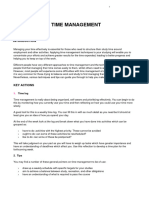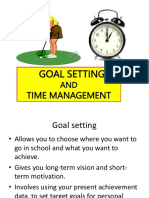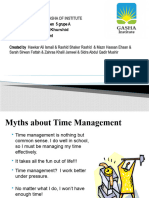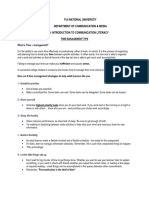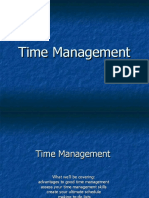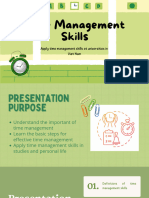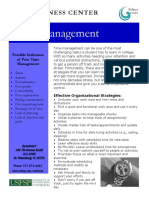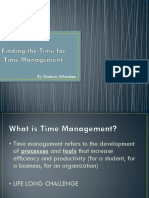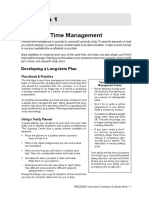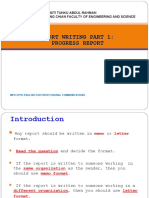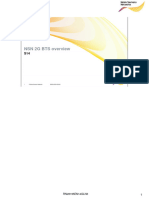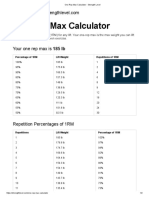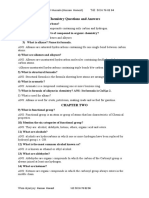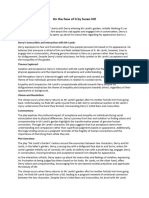0% found this document useful (0 votes)
20 views18 pagesChapter 1 Introduction
Time management is the process of organizing and planning how to allocate time effectively between activities, which enhances productivity and reduces stress. For students, effective time management involves creating a life schedule, being flexible yet realistic, allowing time for planning, avoiding procrastination, and incorporating exercise. Failing to manage time can lead to missed deadlines, poor work quality, and increased stress.
Uploaded by
chang tek namCopyright
© © All Rights Reserved
We take content rights seriously. If you suspect this is your content, claim it here.
Available Formats
Download as PPTX, PDF, TXT or read online on Scribd
0% found this document useful (0 votes)
20 views18 pagesChapter 1 Introduction
Time management is the process of organizing and planning how to allocate time effectively between activities, which enhances productivity and reduces stress. For students, effective time management involves creating a life schedule, being flexible yet realistic, allowing time for planning, avoiding procrastination, and incorporating exercise. Failing to manage time can lead to missed deadlines, poor work quality, and increased stress.
Uploaded by
chang tek namCopyright
© © All Rights Reserved
We take content rights seriously. If you suspect this is your content, claim it here.
Available Formats
Download as PPTX, PDF, TXT or read online on Scribd
/ 18








